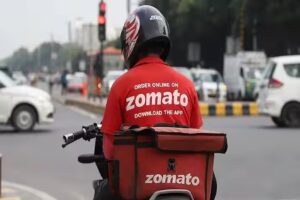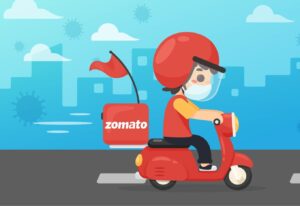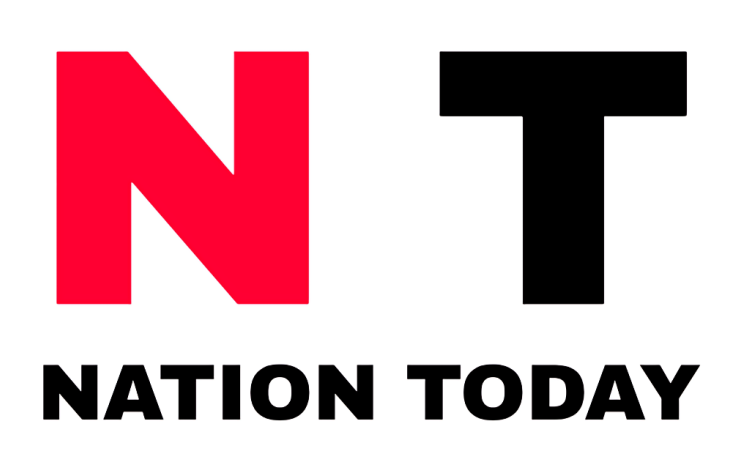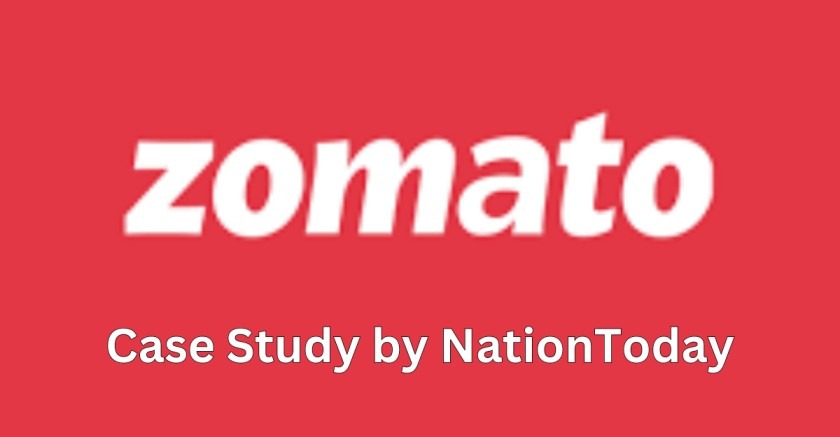Zomato, originally known as FoodieBay, is a prominent Indian multinational restaurant aggregator and food delivery company. Founded in 2008 by Deepinder Goyal and Pankaj Chaddah, the company has evolved from a restaurant-listing portal to a comprehensive platform offering food delivery, table reservation, and other related services. Zomato operates in the fiercely competitive online food ordering and delivery market, primarily competing with major players like Swiggy. The industry is characterized by rapid technological advancements, changing consumer preferences, and evolving regulatory landscapes. Zomato’s ability to innovate, provide a seamless user experience, and maintain a strong market presence is crucial for its sustained success.
As of 2022–23, Zomato has a presence in more than 1,000 Indian cities and towns, highlighting its extensive reach in the domestic market. The company’s foray into international markets, although scaled back in 2021, underscores its global ambitions.

Financial Performance (Zomato):
As of the fiscal year 2022-23, Zomato reported impressive financial figures:
- Revenue: ₹7,079 crore (US$890 million) – showcasing substantial growth.
- Operating Income: Positive decrease of ₹−1,014 crore (US$−130 million).
- Net Income: Positive decrease of ₹−971 crore (US$−120 million).
These financial metrics highlight Zomato’s significant revenue generation, though a decrease in operating and net income indicates strategic investments or challenges faced by the company.
| Financial Metric | Amount (FY23) |
| Revenue | ₹7,079 crore (US$890 million) |
| Operating Income | ₹−1,014 crore (US$−130 million) |
| Net Income | ₹−971 crore (US$−120 million) |
Ownership Structure:
Zomato’s ownership is distributed among major stakeholders:
- Info Edge: Owns a 13.88% stake.
- Antfin Singapore: Holds a 6.39% stake.
The remaining ownership is with public shareholders. This ownership structure indicates a mix of strategic investors and public participation.
| Owner | Ownership Stake (%) |
| Info Edge | 13.88% |
| Antfin Singapore | 6.39% |
| Public Shareholders | Remaining Percentage |
Services and Expansion:
Zomato offers a range of services, including food delivery and table reservation, making it a comprehensive platform for users. The company expanded globally, entering markets such as the UAE, Sri Lanka, Qatar, the UK, the Philippines, South Africa, New Zealand, Turkey, Brazil, and Indonesia. In 2015, Zomato ventured into the competitive US market through the acquisition of Urbanspoon.
Growth Strategies:
- Diversification: Beyond restaurant listings, Zomato entered the food delivery segment in 2015, competing with players like Swiggy.
- Acquisitions: The acquisition of Urbanspoon, NexTable, and Runnr expanded Zomato’s reach and services.
- Technology Integration: Initiatives like Zomato Base (POS system), Zomato Trace (delivery tracking), and Zomato Instant (10-minute delivery pilot) showcase the company’s commitment to technological innovation.
Funding:
Zomato’s funding history reveals its journey to becoming a unicorn:
- 2010-2013: Raised approximately US$16.7 million.
- November 2014: Funding round of US$60 million.
- February 2018: Became a unicorn after raising US$200 million from Ant Financial.
- July 2021: Went public with an IPO at a valuation of over US$8 billion.
These funding milestones reflect investor confidence and sustained financial backing.
Acquisitions:
Zomato strategically acquired various startups to enhance its offerings:
- Urbanspoon: Entry into the US market.
- Runnr: Strengthening food delivery capabilities.
- TechEagle Innovations: Focused on drone technology for future food delivery innovations.
These acquisitions contributed to Zomato’s growth and competitiveness in the industry.

Controversies:
1. “Food has no religion” Tweet (July 2019)
- Issue: A customer complained about being assigned a non-Hindu delivery boy and requested a change, which Zomato refused. The incident sparked a controversy.
- Zomato’s Response: The company asserted, “Food doesn’t have a religion. It is a religion.”
- Outcome: Positive responses were received for Zomato’s stance, but discussions on food tags (like Jain and Halal) placed by individual restaurants also ensued.
2. Logout Campaign (August 2019)
- Issue: Over 1,200 restaurants, particularly from Pune, logged off from Zomato Gold due to aggressive discounting, affecting Zomato’s premium subscription service.
- Zomato’s Response: Zomato founder Goyal admitted mistakes and offered corrective measures, urging restaurants to end the #Logout campaign.
- Outcome: A mix of resolved issues and ongoing discussions between Zomato and restaurant partners.
3. Delivery Partner Assault Accusation (March 2021)
- Issue: A Bangalore-based model accused a Zomato delivery executive of assault after a late delivery. The incident went viral on social media.
- Zomato’s Response: Zomato temporarily suspended the delivery executive and initiated an investigation.
- Outcome: Subsequent investigations raised doubts about the model’s claims, leading to a police FIR against her.
4. “Hindi is our National Language” Controversy (October 2021)
- Issue: A Zomato-chat-support executive asked a customer in Chennai to learn Hindi, falsely claiming it as India’s national language.
- Zomato’s Response: CEO Deepinder Goyal apologized publicly, but his follow-up statement stirred further reactions.
- Outcome: #Reject_Zomato trended on Twitter, indicating dissatisfaction with Zomato’s response, especially from Tamil netizens.
5. Security Breaches (2015 and 2017)
- Incidents:
- In June 2015, a security researcher hacked Zomato’s website, gaining access to information about 62.5 million users.
- In May 2017, over 17 million Zomato user records were claimed to be stolen, leading to a bug bounty program.
- Zomato’s Response: Prompt fixes and cooperation with security researchers. No payment information or credit card details were reported stolen.
- Outcome: Strengthened security measures, and subsequent incidents were handled more effectively.
IPO and Stock Performance:
Zomato went public in July 2021, marking a significant milestone. The IPO valuation exceeded US$8 billion, reflecting strong investor interest. Monitoring Zomato’s stock performance post-IPO provides insights into market perception and the company’s ability to deliver returns to shareholders.
User Base and Engagement:
Zomato’s success is closely tied to its ability to attract and retain a large user base. The platform not only provides users with restaurant information and menus but also facilitates food delivery and table reservations. The user reviews and ratings feature plays a significant role in shaping consumer choices. Analyzing user engagement metrics, such as app downloads, daily active users, and user reviews, would provide insights into Zomato’s popularity and customer satisfaction.

Technological Innovations:
In the fast-paced tech industry, Zomato’s ability to leverage cutting-edge technologies can significantly impact its competitive edge. The development of Zomato Base, a point of sale system for restaurant owners, and the integration of real-time delivery location tracking technology (Zomato Trace) showcase the company’s commitment to technological advancements. Analyzing Zomato’s investments in research and development, partnerships with tech firms, and the integration of emerging technologies into its platform can offer insights into its technological trajectory.
COVID-19 Impact and Adaptation:
The COVID-19 pandemic has had a profound impact on the food delivery industry. Zomato’s strategic decision to venture into delivering groceries and essentials under Zomato Market during the pandemic demonstrated its agility and adaptability to changing market conditions. Assessing the impact of COVID-19 on Zomato’s business, the effectiveness of its response, and the continued relevance of pandemic-induced services will be crucial for understanding its resilience and flexibility.

Corporate Social Responsibility (CSR) Initiatives:
Zomato’s acquisition of Feeding India in 2019 and its subsequent efforts to combat malnutrition through the Daily Feeding Program demonstrate the company’s engagement in CSR activities. Investigating the impact of such initiatives, their alignment with Zomato’s brand image, and their contribution to community welfare can shed light on the company’s commitment to social responsibility.
Regulatory Challenges:
The online food delivery sector is subject to various regulatory challenges, including licensing requirements, data privacy concerns, and labor-related issues. Analyzing Zomato’s approach to navigating these challenges, its collaborations with regulatory bodies, and any legal disputes it may have faced provides a comprehensive understanding of the company’s risk management strategies and regulatory compliance.
Zomato’s journey from a restaurant listing platform to a global food delivery giant is marked by strategic decisions, financial milestones, and challenges. The company’s success in navigating a dynamic industry, raising substantial funds, and addressing controversies positions it as a key player in the online food services sector. Monitoring Zomato’s future endeavors, technological innovations, and market performance will be crucial for understanding its sustained growth and industry leadership.
For more such articles visit NationToday

